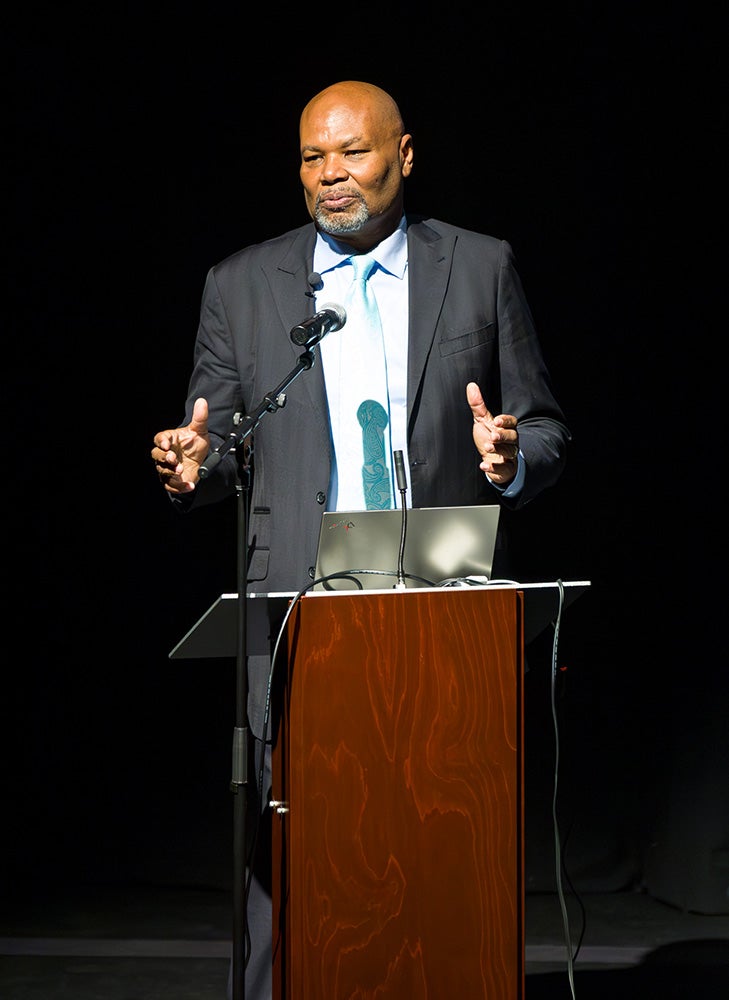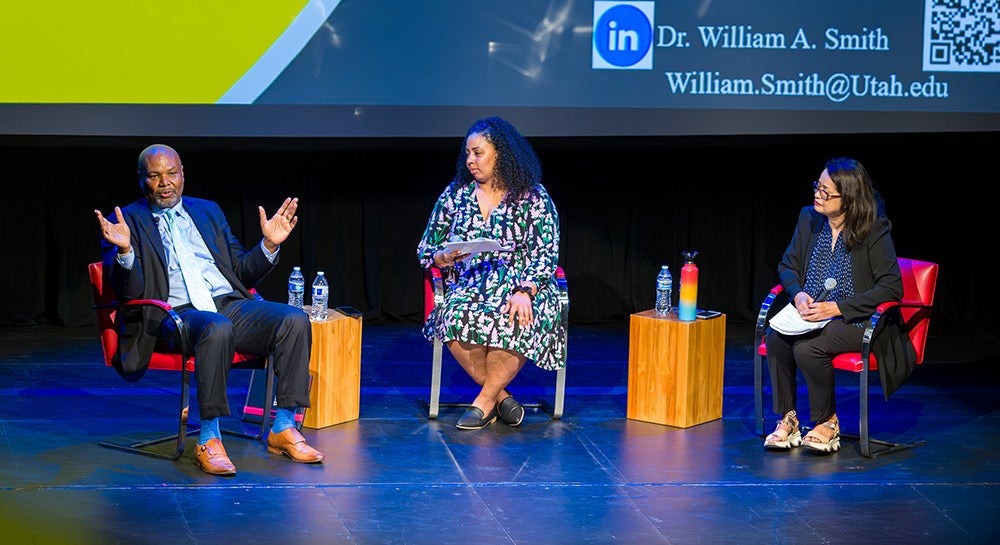Powerful Lecture Illuminates Racial Battle Fatigue’s Impact on Campus Communities
By: Teagan Davidge
The University Student Union (USU) and University Counseling Services hosted a powerful presentation deconstructing Racial Battle Fatigue with Dr. William A. Smith.

Keynote speaker Dr. William A. Smith, chief executive administrator at the Huntsman Mental Health Institute at the University of Utah, delved into the science behind Racial Battle Fatigue. He discussed its short term and lasting effects, and how campus communities can change to uplift minority groups.
“Ask the community what they need. Have a conversation and say, ‘here are some of the things we can offer. Let’s talk about how we can work together on that,’ said Smith. “So, we have community outreach, having those connections where you can see the university is a partner and really doing something progressive and proactive.”
The talk addressed trauma-informed care and coping methods with participants, outlining the four Rs of dealing with Racial Battle Fatigue; Realize, Recognize, Respond, and Resist. Dr. Smith commended students and faculty attendees for partaking in the first two steps and strives for others to begin to do the same.
“We have to realize the systemic and individual nature of racism, how it causes Racial Battle Fatigue, and we have to seek resilient, adaptive coping strategies,” Smith said. “We fit within a system, and that system is fed by the way we’re being educated. The way that we don’t recognize what is going on around us.”
This lecture is part of the DEI Grant Essential Talks lecture series. Dr. James Henry, Educational Opportunity Program retention specialist and a host of this illuminating lecture, explained how the series was introduced to campus. He highlighted a pressing need for self-reflection and made known how talks like this will advance the campus environment.
“Essential Talks was created after the killing of Gorge Floyd to shed light on how society’s systems and polices lead to antiblack policies and behaviors that devalue our humanity. We are reminded of the urgent need to examine ourselves collectively and challenge ourselves to do better,” said Henry. “We highlight the visit of our guest, Dr. William A. Smith, who through his research can help us to create a more dynamic, equitable and just campus community and society that we live in.”
